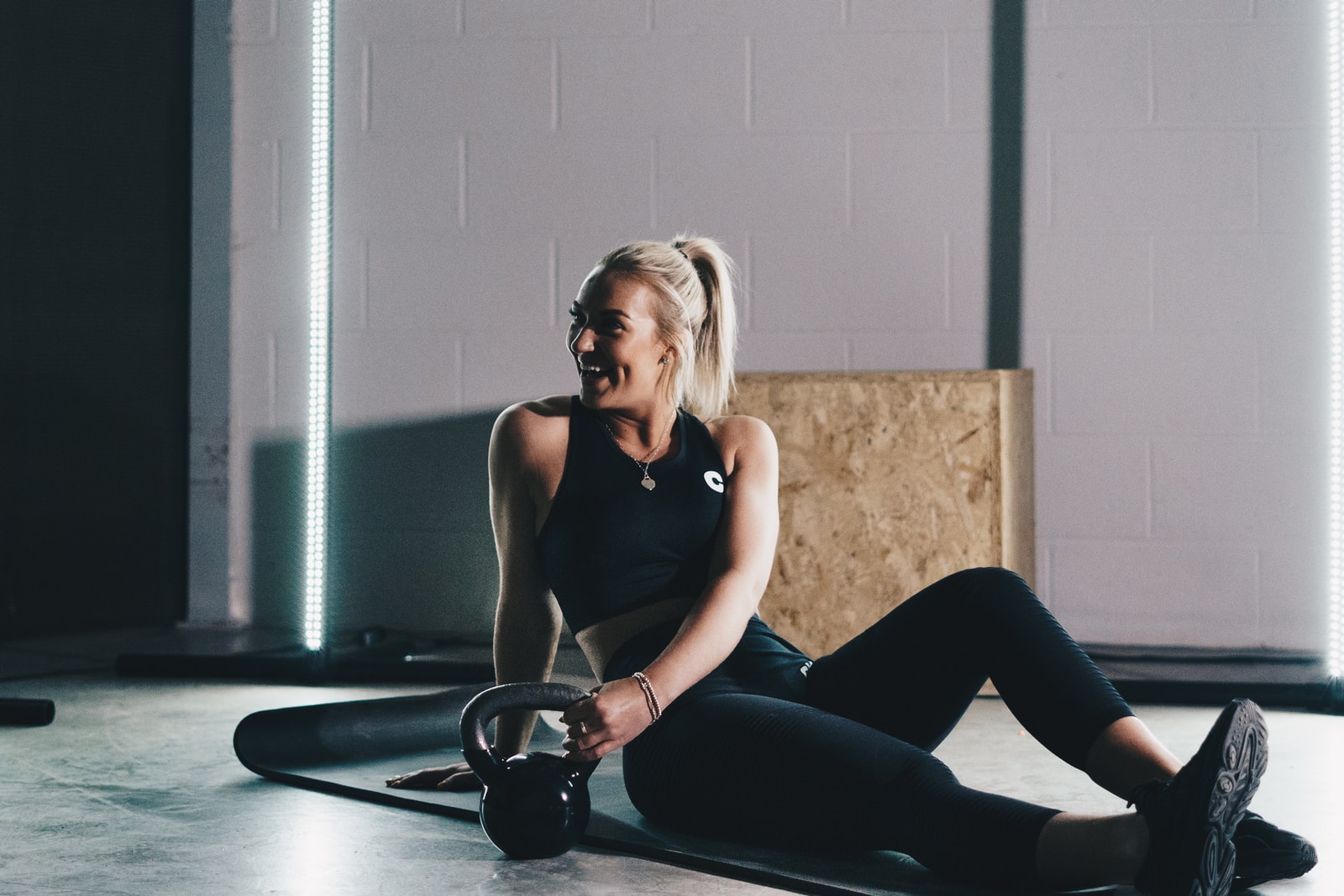*Peer reviewed and co-authored by Neda Khalili, certified National Academy of Sports Medicine Trainer
Today, we are going to unpack five of the most common exercise myths to help you get to a healthier you! It can be so confusing when we are surrounded by so much proverbial “noise” and one moment “coffee is good,” and the next can be “coffee is bad.” I want you to feel like you can have some clarity, enjoy and sustain a healthy, REAL lifestyle, and tune out some of that every changing radio static! So here we go!
My first source of inspo for this post was this article and YouTube video explaining some of the top myths from trainer Jillian Michaels. Yes, I am obsessed with her. I’ve seen her live twice and worked out with her on stage. She is QUEEN.
She covers a lot of good points, and I have some additional ones that I have gained from my experience.
Myth#1: Exercise is all about weight loss
Have you ever seen one of those charts where it says how many minutes you have to run to burn off various foods. This article summarizing some of these stats is a perfect example. By drinking black coffee instead of that mocha latte, you can skip running for an hour. There was a famous article by Vox Magaxine summarizing 60+ studies that show how little exercise plays a role.
Researchers conducted a study comparing the Hadza people—a hunter-gatherer tribe in Tanzania—with sedentary office workers in Western countries to understand differences in calorie expenditure. Despite the Hadza’s highly active lifestyles, the study found that they burned roughly the same number of calories per day as sedentary individuals when adjusted for body size and composition.
The surprising conclusion was that the total daily energy expenditure (TDEE) didn’t differ significantly between the groups. This suggests that the human body may have an energy “budget” and compensates for increased physical activity by reducing energy used in other processes like inflammation, reproduction, or rest. In short, more movement doesn’t necessarily mean more calories burned overall.
The key takeaway is that while exercise is essential for health and fitness, weight management is more closely linked to diet than physical activity alone.
It’s not black and white, though. That does not mean it plays NO role. It just means you can look at it as a supplement, but not a subsititute, for a balanced diet. Numerous studies show that people underestimate how many calories that they burn – like this one, this one, and this one. This is why I track my daily food intake without taking exercise at all into account in my caloric goals.
Exercise is so much more than just a means to an end of calories versus calories out. In fact, exercise is only responsible for at maximum ten to twenty percent of burning off what we consume; our bodies actually work a lot harder in the consumption and digestion process than they do in exercise itself. Exercise has mental health benefits, bone/osteo health benefits, respiratory benefits, and a growing motivation to eat healthier as you achieve your fitness goals. The better you feel, the more motivated you will be to take care of your body and your health.

Myth#2: Cardio or strength training is “king”
Ahhh, yes! It is either one or the other or “insert doctrine of choice here” One benefits from both cardiovascular and strength training exercise and it is possible to do them simultaneously (for example, through a form a HIIT training or doing intervals).
Generally speaking as well, there are so many elements than just putting some miles in and pumping some iron. Fitness is about feeling the proverbial “fit” inside and out, so that means striving to keep our balance and keeping our joints and ligaments flexible and supple. After a good alignment yoga class or stretch session, you potentially may feel the “ufff, burn so good soreness” but you do not feel like you were hit with a baseball bat wondering what happened. You feel flexible and mobile through the day for the short term but for the long haul, as well!

Myth#3: If you don’t go hard you should go home (and sit on the couch)
My fitness editor gets the ultimate cringe when she hears this. This is a version of ‘toxic hustle’ for your body. Somedays, we may want to go after it and if you tune and really listen to your body and you get the green light, go for it. Other days, our bodies may feel zonked for whatever maybe the reason, those days may require something lighter or indeed to call it a rest day and that is okay! When our bodies are in literal pain, it is our bodies’ alarm system going off and saying “help and stop right here, please” and it is absolutely imperative that we stop and listen before hurting ourselves.
Our bodies get stronger during rest and to your surprise, you will be amazed at how much more strength and endurance you can develop by literally taking a breather. Exercise and movement has a form of eustress (good stress) on our bodies and when we exert ourselves, we practice small microtears within our bodies. These microtears (that good soreness you may feel 24-48 hours after) need time to heal before turning into actual distress on the body and very, real macrotears (aka a torn muscle- forreal). That healing time is rest. Maybe you are having one of those days, tune in for a moment to see how you really feel before crashing on the couch, only to see if there is another avenue that eustress to be addressed or it is time for Netflix!
Myth#4: If you can’t carve out at least 30-60 minutes don’t bother
This is a dangerous and all too common myth within the type A career crowd. Everything is fast-paced, competitive, and go-go-go! That leads to this false notion I have often heard that you do not dedicate this complete chunk of 30-60 minutes than absolutely just forget about because you’ve got things to do! We can take a note from myth #1 in that our exercise only accounts for a small number of calories burned throughout the day any which way! This is a dangerous myth, in that you actually can have spurts of exercise throughout your day and they can count to your overall fitness.
Carrying heavy groceries, to running your own errands on foot, to walking meetings and/or walking Zoom meeting- all of these things do count to your overall fitness, health, and well-being. If you have a free 15 minutes to walk around the block a few times between calls, clients, or other pressing issues, and you feel up to it- go for it! All of these baby steps absolutely count because you are working to incorporate movement as a part of your daily lifestyle.

Myth#5: Fitness is all about the body
Fitness is all about the body is a super doozy of a myth. We are subjected to so much advertising with fitness being synonymous with a toned and chiseled body. This is dangerous, as we know, but may forget in the moment- the wonders of Photoshop, editing, and surgery. Someone on a magazine cover or a social media post can have either of the latter, be of that nature genetically, and may totally lie about their fitness regime and their diet.
Fitness works wonders for our cognitive function- our ability to think clearly and even in times of stress, to navigate tough situations better because we do challenge ourselves in a positive manner as a part of our daily lifestyle. There have been very positive findings about fitness helping reduce some of the effects of Generalized Anxiety Disorder, Depression, and PTSD, especially in conjunction with meditation. Practicing quieting our minds or just being still while we ‘see’ our minds go at it, enables us to live life in a more full manner and helps us to be our best selves.






